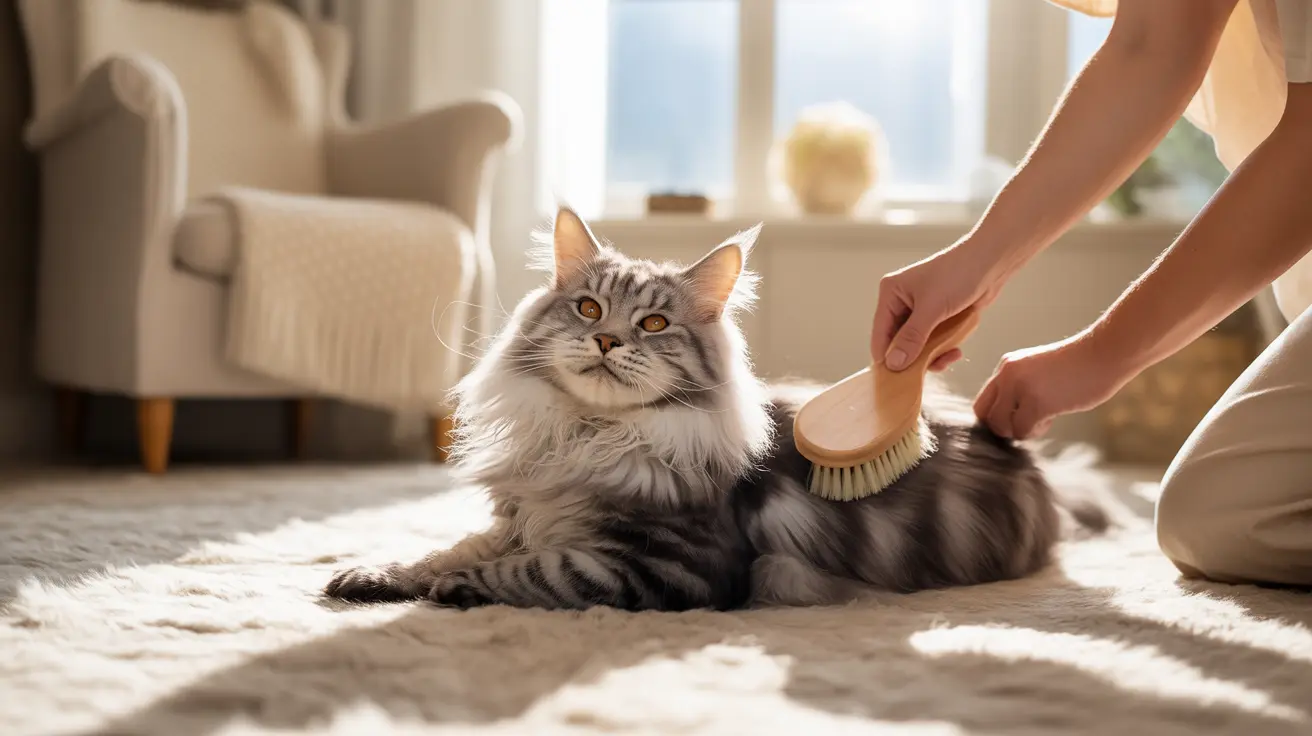Understanding Why Cats Develop Unpleasant Odors
Before implementing solutions, it's crucial to understand why your cat might not smell as fresh as they should. Several factors can contribute to unwanted odors:
Medical Issues
Persistent bad odors can signal underlying health problems like dental disease, skin infections, or digestive issues. If your cat suddenly develops an unusual smell, it's important to consult with your veterinarian to rule out medical concerns.
Poor Grooming Habits
Cats that can't groom effectively due to obesity, arthritis, or age may develop an unpleasant smell from accumulated oils and debris in their coat. Senior cats and those with mobility issues are particularly susceptible to grooming-related odors.
Essential Grooming Practices for a Fresh-Smelling Cat
Regular Brushing
Daily brushing removes loose fur, dander, and dirt while distributing natural oils throughout your cat's coat. This simple practice can significantly improve your cat's scent and reduce the need for baths.
Strategic Bathing
While most cats don't need frequent baths, occasional washing with cat-specific shampoo can help eliminate stubborn odors. Always use lukewarm water and make the experience as stress-free as possible.
Managing Environmental Odor Sources
Litter Box Maintenance
A clean litter box is crucial for controlling cat odors. Scoop daily, replace litter completely every 1-2 weeks, and clean the box thoroughly with unscented soap and water during changes.
Home Environment
Address odors at their source by maintaining clean bedding, using air purifiers, and ensuring proper ventilation throughout your home. Natural deodorizers like baking soda can help absorb ambient odors.
Natural Remedies and Solutions
Several natural methods can help improve your cat's smell:
- Use pet-safe wipes for quick freshening between grooming sessions
- Apply a small amount of coconut oil to their coat (if tolerated)
- Place activated charcoal near litter boxes to absorb odors
- Use enzymatic cleaners for accident spots
When to Seek Professional Help
If natural solutions aren't effective, or if your cat's odor suddenly changes or becomes severe, consult a veterinarian. Persistent bad smells could indicate health issues requiring medical attention.
Frequently Asked Questions
How can I make my cat smell better without giving frequent baths?
Regular brushing, using pet wipes, maintaining a clean litter box, and ensuring proper nutrition can keep your cat smelling fresh without frequent bathing. Focus on preventative measures rather than reactive solutions.
What are the best ways to keep a cat's litter box from smelling?
Scoop daily, use clumping litter, replace litter completely every 1-2 weeks, and clean the box thoroughly with unscented soap. Consider using natural deodorizers like baking soda around the box area.
How does poor grooming or dental problems cause bad odors in cats?
Poor grooming leads to oil and debris buildup in the coat, while dental problems can cause bad breath and infection-related odors. Both issues require different approaches to resolution.
Are there safe natural remedies to reduce my cat's odor at home?
Yes, safe natural options include pet-specific grooming wipes, coconut oil (in moderation), regular brushing, and maintaining a clean environment. Always avoid essential oils, which can be toxic to cats.
When should I take my cat to the vet for persistent bad smells?
Consult a veterinarian if you notice sudden changes in your cat's odor, persistent bad smells despite good hygiene, or if the smell is accompanied by other symptoms like changes in behavior or appetite.






